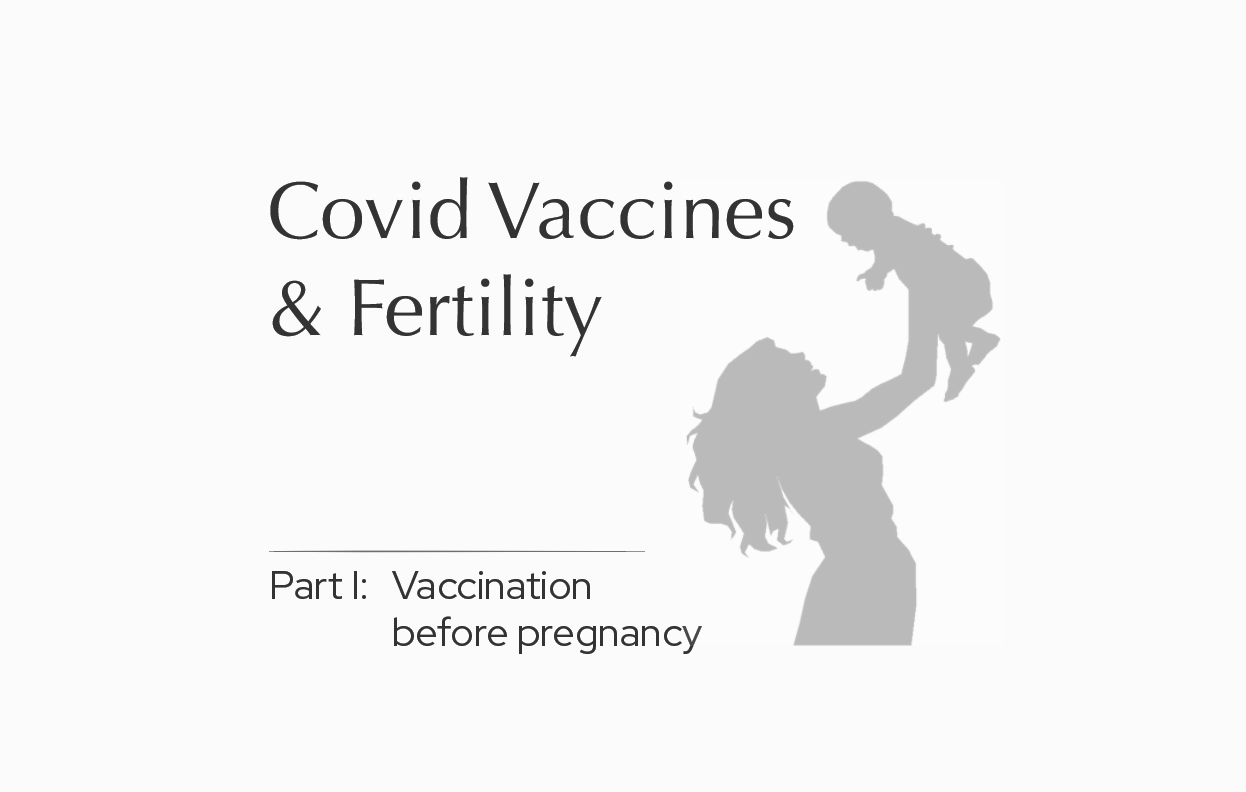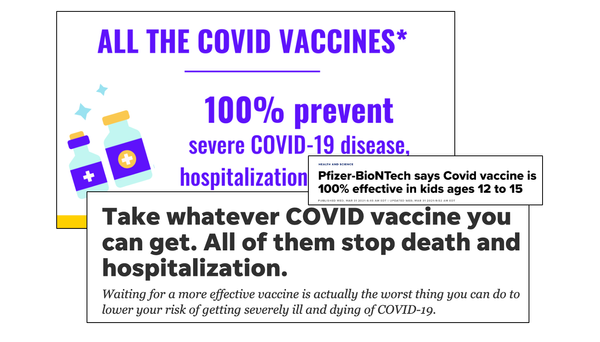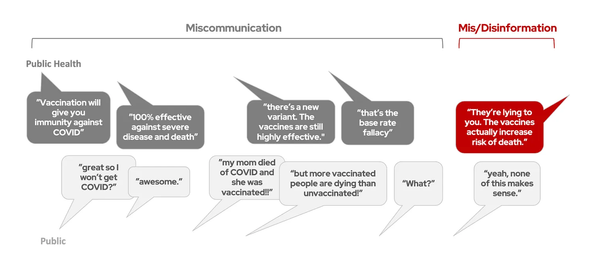COVID vaccines and fertility: vaccination before pregnancy

Guest post by Sana Zekri, MD, a board-certified physician in Family Medicine with Obstetrics.
Child-bearing is an aspiration of great importance to many people. Many find the idea of child-bearing to be critical to their personal philosophy of success in life, and there is no doubt that the drive to procreate is among the animating forces in human behavior. In this series of articles, I’ll answer some common questions about the risks and benefits of the COVID-19 vaccines in the context of fertility, pregnancy and breastfeeding.
In my own practice, I take my patients’ questions on the topic of childbearing in the age of COVID-19 very seriously. My personal style is to take time to review the status of the evidence, the risks and the benefits of any intervention that might affect a new generation. Some of my patients opt to get vaccinated after a conversation of the risks and benefits, and some of my patients don’t get vaccinated. The most important thing to me is that my patients feel they have a safe and reliable source of information that they can trust to help them navigate the waters of medical information. I never doubt that my patients want what is best for their pregnancy, and I just want to be part of the team that helps increase the chance of a good outcome.
Vaccination Before Pregnancy
Where did the concern about COVID vaccines and fertility come from?
Rumors about the safety of vaccines for pregnant women began circulating even before the vaccines became available to the general public. As the COVID vaccines were being considered for approval for use in the United States and Europe in fall of 2020, a viral rumor began circulating that alleged the vaccines would sterilize women. The rumor alleged that there could be cross-reactivity between the spike protein encoded in the vaccine and the syncytin-1 protein expressed in the placenta, claiming that antibodies generated by the vaccine would accidentally attack the placenta instead. This claim had major flaws including the lack of structural similarity between the spike protein and syncytin-1 protein and a lack of accounting for infertility that should arise from COVID illness if this rumor were true. Dr. Panthagani addressed this rumor on You Can Know Things when it first began circulating.
Antibodies from COVID vaccines do not attack the placenta
While the rumor was baseless, because it became a talking point of opposition to the vaccine, further research was done on the topic. In 2021, an article in nature formally tested the capacity for anti-COVID spike antibodies to bind syncytin-1. They found no antibody activity against syncytin-1, whether by vaccination against COVID-19, or by infection with COVID-19. COVID-19 immunity by any means does not appear to induce antibodies against syncytin-1: there is no risk that spike protein antibodies from COVID vaccines are going to accidentally attack the placenta. This rumor provides yet another unfortunate example of how one unsubstantiated claim went viral causing unnecessary widespread alarm.
COVID vaccination does not impact implantation
Further (albeit small) studies were done analyzing the effects of COVID antibodies (derived from both infection and vaccination) on implantation using the most direct method of analysis- in-vitro fertilization. Implantation occurs shortly after conception when the fertilized egg implants into the lining of the womb. In the studies (linked here, here, and here), no difference was found between sperm and eggs from men and women who had antibodies (whether from vaccination or infection) and those who did not have antibodies, and implantation rates between vaccinated and unvaccinated people were the same. This data provides reassurance that COVID-19 vaccination does not cause meaningful disruptions to the capacity to become pregnant.
Do the COVID vaccines affect menstrual periods?
After the COVID-19 vaccines started to be distributed, there was an increase in the number of reports of menstrual irregularities. This was tagged as a trend that needed to be researched and followed. Menstruation was not a studied function in the original vaccine trials, and reported adverse events from the vaccine that didn’t result in serious health abnormalities tended not to receive press. Additionally, there didn’t seem to be any impact on fertility in the initial studied populations. However, as the vaccine was distributed to more and more people, reports of menstrual irregularities also came in, and this was deemed an important topic to research. A plausible explanation for why some people experience menstrual abnormalities was suggested to be that vaccination induced an immune (stress response), which can impact menstrual cycle.
A study published in the Journal of Obstetrics and Gynecology in January of 2022 reports minor impacts on menstrual cycle length after vaccination (i.e. women were bleeding later in their cycle than usual). The average impact in cycle length is lengthening by 1 day during the cycle of vaccination. While some women who have consistently irregular cycles may experience difficulties with conception, thankfully there is no evidence linking vaccination to difficulty conceiving (as we just discussed). The article in the Journal of Obstetrics and Gynecology does not follow up to see if this change in menstrual cycle length ‘resolves’ or not, but the anecdotal reports are that menstrual cycles proceed without additional abnormalities.
Anecdotally, in my own practice, I have seen women who had not had menstrual bleeding for years because of IUD birth control, or women who had a typically regular period, or women who were post-menopausal, have bleeding that was unusual for them shortly after COVID vaccination. In most of these cases, I did an investigation to make sure there was nothing concerning for dangerous causes of unusual bleeding and did not find anything. The unusual bleeding resolved in all of these cases and the women went back to their normal cycles.
In conclusion, the data to date provides strong reassurance that COVID vaccination does not impact the ability to become pregnant. While minor, temporary changes to menstrual length have been observed after vaccination, there is no indication that these changes are long lasting. In the next post in this series, we’ll discuss the risks and benefits of COVID vaccination during pregnancy and why it’s extra important that pregnant patients be protected from COVID.
Dr. Sana Zekri, MD is a Family Medicine with Obstetrics Physician. His particular interests are in public health, global health, women’s health and working towards justice in medicine. He is currently an Assistant Clinical Professor at SUNY Upstate, in Syracuse, New York.
The views expressed on this website do not necessarily reflect the official views of the author’s employers or affiliated institutions. This post is for informational purposes only and is not meant to substitute medical advice from a qualified health professional.



